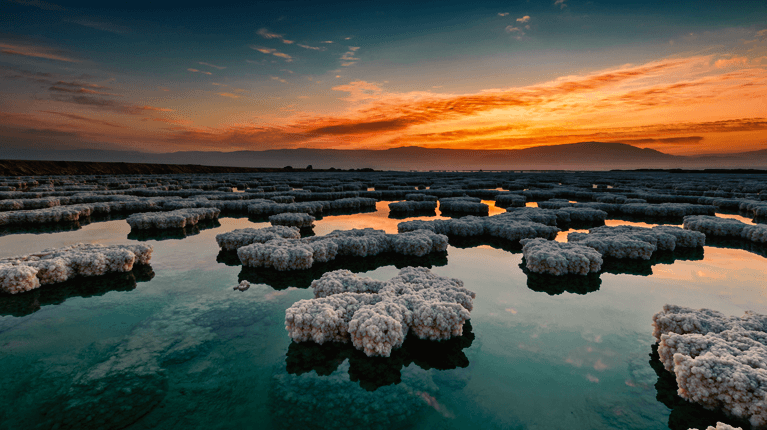30%off sitewide - over $99 | Discount Applies In Cart (*Excluding NUNA)
The Dead Sea Canal Project
Will the Dead Sea Canal Project
Save the Dead Sea?
Save the Dead Sea?

The Sea Canal project brings cooperation between Israel and Jordan, but its contribution to Israel’s water economy is expected to be very small. Prof. Raphael Smith of the Technion’s Faculty of Chemical Engineering: “Anyone who expects the project to reduce the decline in the Dead Sea level – that will not happen”
The Dead Sea Canal project recently made a big step towards implementation and will be submitted for Cabinet approval soon. Approximately 300 million cubic meters of water will be pumped to the Jordan River and some 65 million cubic meters of water will be transferred to a desalination plant to be built in Aqaba, Jordan – 30 million cubic meters of the desalinated water will be channeled to Jordan and 35 million cubic meters will be transferred to the Arava communities. At the same time, salt water are expected to reach the Dead Sea in a long pipe in hope of stabilizing the water level, which is decreasing by about 1.20 meters annually.
THE
Canal's
contribution

The
Contribution to
water sector
in israel
Regarding the contribution of the Dead Sea Canal to the water sector in Israel, Prof. Smith of the Technion’s Faculty of Chemical Engineering emphasizes that the Canal will have a local contribution to the Arava residents, although this is not a significant contribution to the entire water sector in Israel
The Ministry of Environmental Protection, which will also participate in the discussions, clarifies that there may be a chance of a slight reduction in the decline in the water level of the Dead Sea, but there are also serious environmental risks and consequences to the Dead Sea that need to be investigated after the implementation of the project.
“According to research, we discovered that only if a we restricts the amount of seawater that is being pumped from the Red Sea to the Dead Sea, it is possible to avoid destructive effects, the limit is 400 million cubic meters,” says Galit Cohen, deputy director of planning and policy at the Ministry of Environmental Protection, with that, Cohen emphasizes that in the first stage a much smaller amount of water will be pumped.
The
Ministry of Environmental ProtectionStresses that the level of the Dead Sea is not on the agenda and there is no possibility of stabilizing the level at present because 700 million cubic meters of water a year is needed to cover the deficit at the Dead Sea. However, the approach of cautious optimism is expected to lead to a reduction of the decline of the level each year, but Prof. Smith believes that the Dead Sea Canal project will not solve the problems at all and will not reduce the decline of the water levels. “Those who expect the project to bring about a solution – this will not happen. It’s a very big distance, you need serious pipes and it’s very expensive and not economic, “Smith notes.
The organization, Adam V’Teva, is vehemently opposed to the project and is expected to publish a report on the subject. Their claim is that the project will destroy the Dead Sea. “This is foreign water that will enter the Dead Sea, the entire Dead Sea will be covered with plaster and it will no longer be the Dead Sea,” notes Li-Goldenberg, head of economics and natural resources at Teva.
Although the contribution of the Dead Sea Canal to the Israeli water sector is not great and the contribution to the Dead Sea is doubtful, the great advantage of the Dead Sea Canal is its cooperation with Jordan, a partnership that has political and geopolitical significance.

- Meet Our Experts
- Gift Guide
- THE PREFECT RITUAL
- About Premier
- Research & Development
- Nobel Prize Winner George Smoot
- Premier Liposome Complex
- Premier & Mariah Carey
- Premier Community & Environment
- Celebs Love Premier
- From The Press
- PREMIER DEAD SEA SHOPS
- Premier Awards
- Premier International
- FAQ
- Testimonials Reviews
- Dead Sea Minerals
- Dead Sea Mud
- The Lowest Gallery
- The Dead Sea Cannal
- The Longest Salt Cave
 Chinese
Chinese French
French Russian
Russian Spanish
Spanish